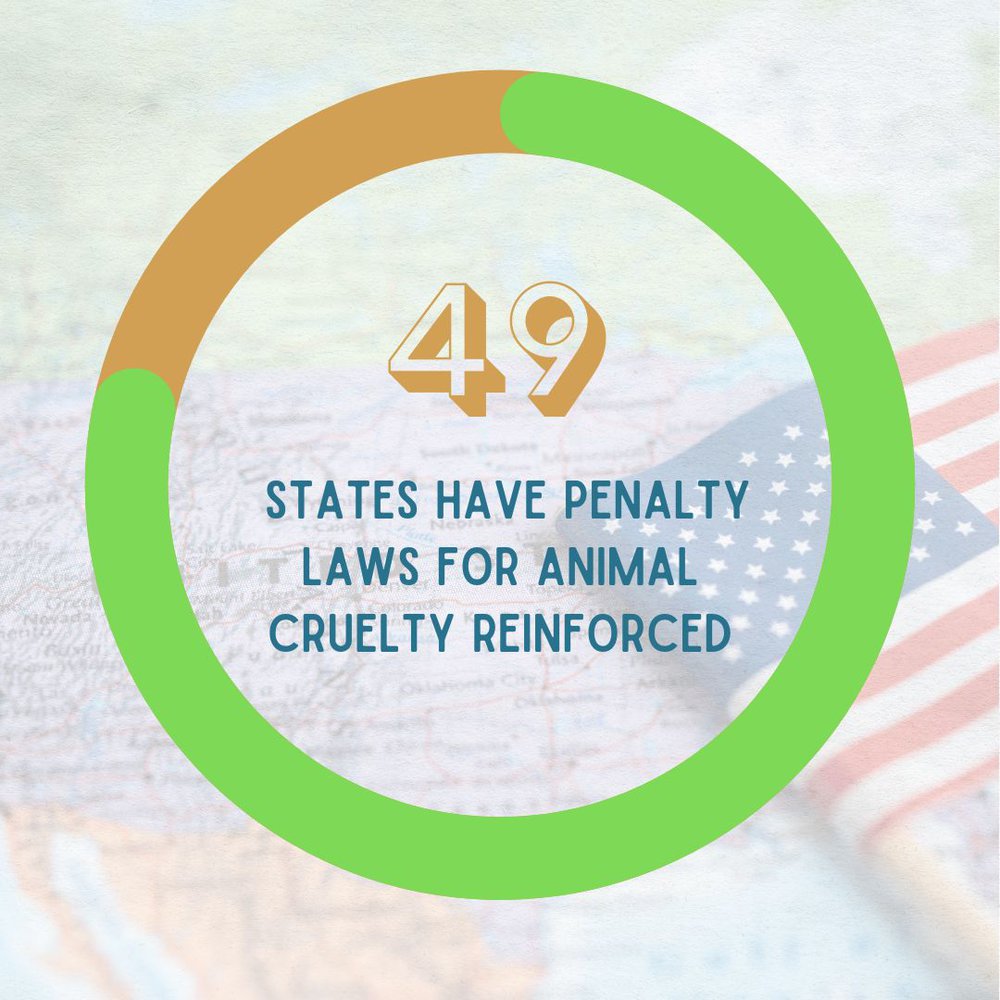Animal cruelty is a pervasive issue that transcends geographical boundaries, affecting countless creatures across various ecosystems. In Utah, the legal ramifications for such abhorrent behavior are structured to penalize offenders adequately. This discourse aims to elucidate the nuances of animal cruelty laws in Utah, highlighting whether such offenses are classified as felonies and the consequent penalties associated with them.
At the outset, it is crucial to delineate what constitutes animal cruelty. Generally, animal cruelty involves the intentional infliction of harm or suffering on animals. This can encompass a myriad of actions, from neglect and abandonment to outright physical abuse. Legislative frameworks throughout the United States strive to address these injustices, and Utah has established its own specific statutes pertaining to the treatment of animals.
Utah Code Section 76-9-301 outlines the definitions and penalties associated with animal cruelty. Under this code, animal cruelty is considered a class B misdemeanor. However, the severity of the charge escalates under certain circumstances, particularly if the act is perceived as more grievous. If an individual commits a subsequent offense or if the cruelty results in the death of the animal, the charge can rise to a class A misdemeanor. Furthermore, cases involving extreme cruelty may warrant felony charges, depending on the egregiousness of the actions taken.
The classification of these crimes serves a dual purpose. On one hand, it aims to deter would-be offenders by establishing a clear legal framework and significant consequences. On the other hand, it seeks to advocate for the rights of animals, reflecting a growing societal acknowledgment of their intrinsic value and the need for humane treatment. One might wonder what compels individuals to commit such acts of violence against the most defenseless among us. The answers often lie in complex psychological landscapes, societal influences, and cultural perceptions of animal life.
In Utah, the penalties associated with animal cruelty offenses underscore the state’s commitment to safeguarding animal welfare. A class B misdemeanor can result in up to six months of imprisonment and/or fines not exceeding $1,000. In contrast, a class A misdemeanor may lead to a maximum of one year in jail and fines up to $2,500. When horrific acts lead to felony charges, the punishments become even more severe, potentially encompassing multiple years of incarceration and hefty fines.
One observable facet of animal cruelty legislation is its evolution over time. Just as societal norms have shifted regarding the moral treatment of animals, so too has the legal framework. In recent years, there has been a significant movement advocating for harsher penalties and greater enforcement of animal welfare laws. This change is indicative of a broader cultural transformation that increasingly perceives violence against animals as unacceptable. The public outcry against high-profile cases of animal cruelty often fuels legislative change, emphasizing the role of community involvement in shaping animal welfare laws.
There is also an inherent connection between animal cruelty and other forms of violence. Research has delineated a troubling correlation between individuals who engage in cruelty toward animals and those who perpetrate violence against humans. This phenomenon captures the attention of lawmakers and mental health professionals alike, prompting a more comprehensive approach to addressing cruelty. Recognizing the underlying issues, such as environmental stressors and psychological disorders, can inform rehabilitative efforts aimed at preventing future offenses.
A notable aspect of Utah’s animal cruelty laws is the recognition of animal fighting as a particularly heinous form of animal abuse. Engaging in, promoting, or owning animals for the purpose of fighting is classified as a felony in Utah. The repercussions are severe, echoing societal disapproval of such barbaric practices. Offenders may face significant imprisonment and financial penalties, reflecting a collective moral stance against the exploitation and suffering of sentient beings.
Furthermore, laws regarding the abandonment and neglect of animals in Utah are also scrupulously designed to mitigate suffering. Abandonment can lead to criminal charges, especially if resulted in significant harm or the death of the animal. The nuances of such laws illustrate the state’s commitment to both prevention and punishment, aiming to create a safer environment for both domestic and wild animals.
Educational initiatives play an essential role in the quest to combat animal cruelty. Awareness campaigns designed to inform the public about the issues surrounding animal welfare can galvanize community support for more stringent laws. Engaging citizens in conversations about empathy and compassion towards animals fosters a culture of respect, which is paramount in curtailing the rampant acts of cruelty.
In summation, the question of whether animal cruelty is a felony in Utah is intricately tied to the legislative landscape and societal attitudes towards animal welfare. While many acts of animal cruelty may initially be categorized as misdemeanors, the potential for escalation to felony charges serves as a grave reminder of the law’s commitment to adequate punishment for severe offenses. As society continues to evolve, so too must our understanding of and response to the complexities of animal cruelty. By scrutinizing the very fabric of our interactions with animals, we can forge a future where kindness and respect rein supreme, ensuring that our fellow beings are treated with the dignity they inherently deserve.








